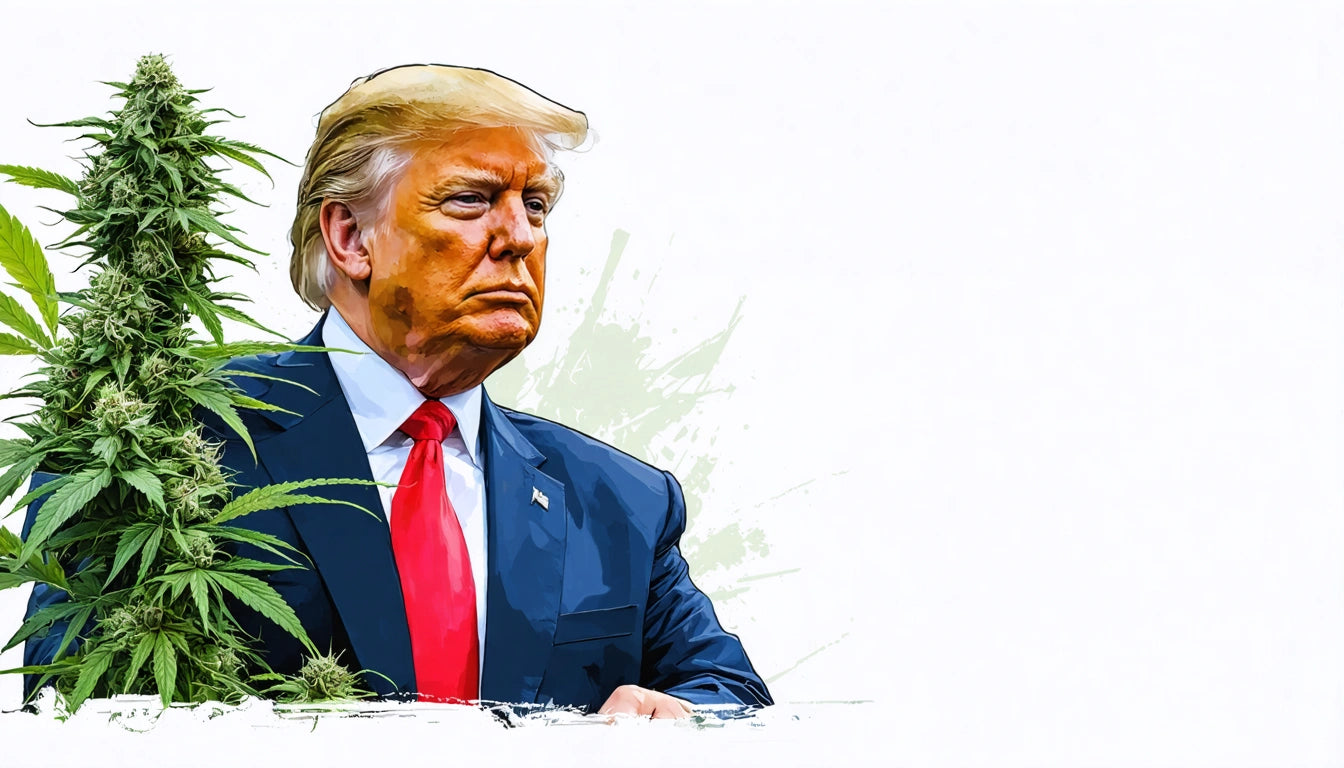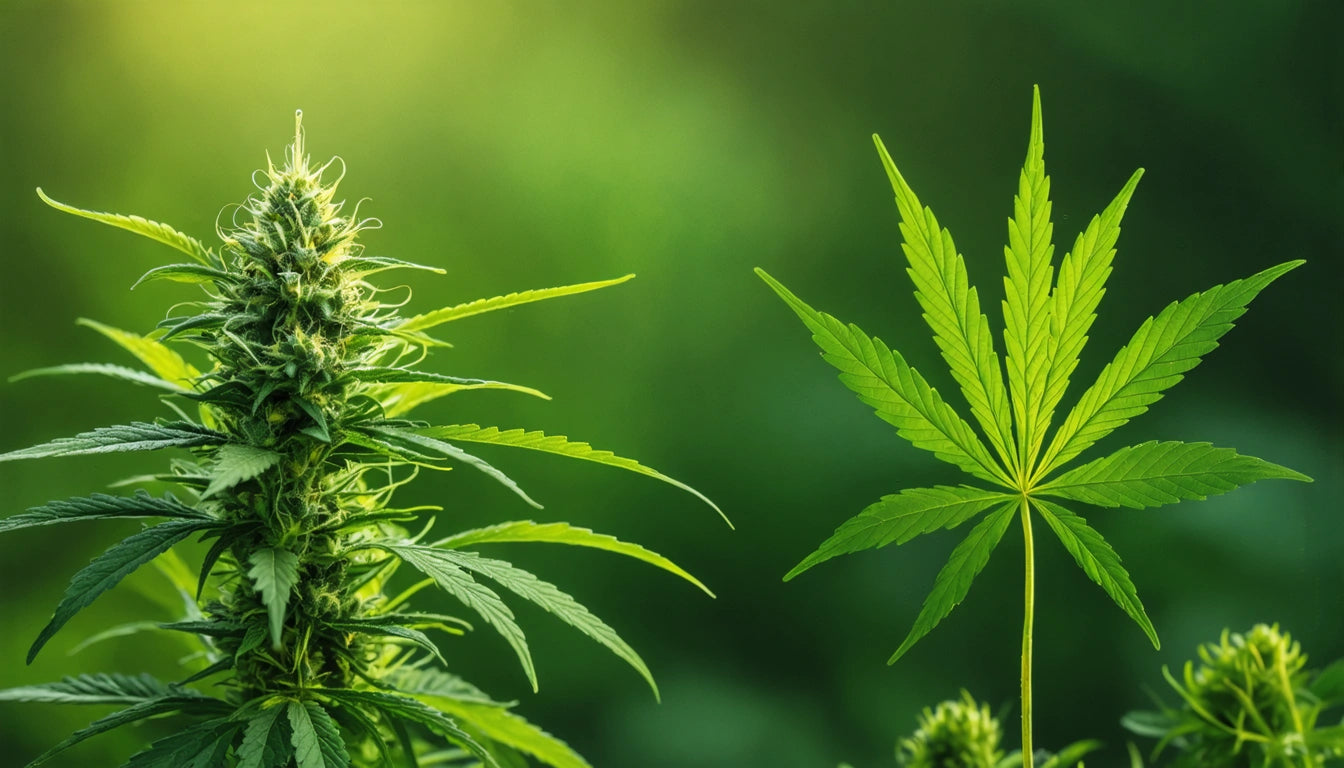Will Trump Legalize Marijuana at the Federal Level?
As the political landscape evolves, many cannabis industry stakeholders are asking: will Trump legalize marijuana if he returns to office? This question carries significant implications for businesses, consumers, and policymakers across the country. While no definitive answer exists, examining Trump's history with cannabis policy, the Republican party's evolving stance, and current political realities provides valuable context for those monitoring federal marijuana reform.
Trump's Past Statements on Cannabis
During his first term as president, Donald Trump made various statements about marijuana legalization that sometimes appeared contradictory. In 2018, he expressed support for bipartisan legislation that would protect states with legal cannabis programs from federal interference. However, his administration, particularly under then-Attorney General Jeff Sessions, initially took a more restrictive approach by rescinding the Cole Memorandum that had previously offered protection to state-legal cannabis operations.
More recently, Trump has indicated he might support allowing states to determine their own cannabis policies without federal intervention. This stance aligns with his broader political philosophy of reducing federal regulations in certain areas. However, explicit statements about whether Trump would push for federal legalization remain limited and often ambiguous.
Republican Party Stance on Marijuana
The question of whether Trump will legalize weed federally is also influenced by broader Republican party positions. Traditionally, Republicans have opposed marijuana legalization, but this stance has evolved significantly in recent years. According to analysis on federal weed legalization prospects, Republican support for cannabis reform has grown, particularly around issues like medical access and states' rights.
Recent polling indicates that a majority of Republican voters now support some form of marijuana legalization. This shift represents a significant change from previous decades and could influence policy positions. However, do Republicans support the legalization of marijuana as a formal party platform? The answer remains mixed, with the party not yet adopting full legalization as an official position.
Key Republican Figures on Cannabis
- Some Republican senators have sponsored cannabis banking reform
- Conservative states like Oklahoma have implemented medical programs
- Former House Speaker John Boehner joined the board of a cannabis company
- Several Republican governors support state-level legalization
Potential Policy Approaches Under Trump
If Trump returns to office, several potential approaches to federal marijuana policy could emerge:
1. States' Rights Approach
The most likely scenario based on past statements is that Trump would support legislation protecting state-legal cannabis programs while maintaining federal prohibition. This approach would allow states to continue implementing their own marijuana policies without federal interference.
2. Incremental Reform
Another possibility is supporting incremental reforms such as cannabis banking legislation, research expansion, or limited medical access. These steps would fall short of full legalization but would represent significant progress in federal policy.
3. Status Quo
Trump might also maintain the current federal approach, which has generally been non-interference with state programs despite continued federal prohibition. This would neither advance nor hinder the current trajectory of state-level legalization.
For those in the cannabis industry who rely on specialized cannabis product filling and packaging equipment for their operations, policy certainty is crucial for long-term business planning and investment decisions.
State vs. Federal Considerations
The question of will Trump make weed federally legal must be considered alongside the current patchwork of state laws. Currently, the majority of states have legalized marijuana in some form, creating a complex regulatory environment where businesses must navigate both state compliance and federal prohibition.
As outlined in this analysis of presidential powers regarding cannabis, any president has limited unilateral authority to legalize marijuana completely. Full legalization would require congressional action, making the president's role more about setting priorities and influencing legislation rather than directly changing federal law.
Business Implications of Potential Legalization
For cannabis businesses, the question of whether Trump will legalize cannabis has significant operational implications:
- Access to banking services and financial markets
- Interstate commerce possibilities
- Tax reform potential (particularly Section 280E)
- Investment landscape changes
- Regulatory compliance requirements
These considerations affect everything from day-to-day operations to long-term strategic planning. Business owners must remain adaptable while monitoring policy developments closely.
What Cannabis Industry Stakeholders Should Watch For
Rather than speculating about whether Trump will legalize pot, industry participants should monitor several key indicators of potential federal policy direction:
First, campaign statements and policy platforms leading up to elections may provide clearer signals about intentions regarding cannabis reform. Second, key administration appointments, particularly for positions like Attorney General, can significantly influence enforcement priorities. Third, congressional composition and leadership positions will determine the viability of any legalization legislation.
While uncertainty remains about whether Trump will legalize marijuana at the federal level, the trajectory of both public opinion and state-level policy suggests continued movement toward reform regardless of who occupies the White House. For industry stakeholders, staying informed about policy developments while focusing on compliance with existing regulations remains the prudent approach.











Leave a comment
All comments are moderated before being published.
This site is protected by hCaptcha and the hCaptcha Privacy Policy and Terms of Service apply.